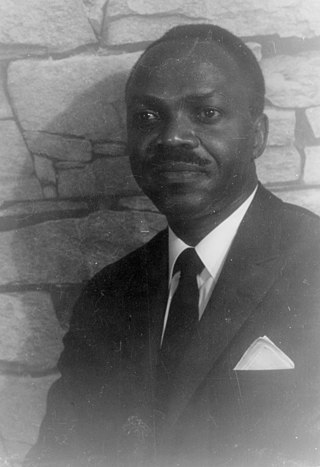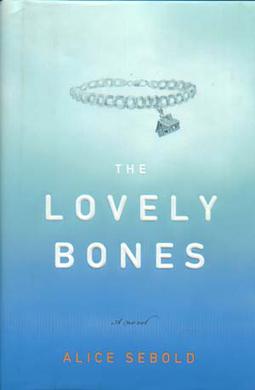
To Sir, with Love is a 1967 British drama film that deals with social and racial issues in an inner city school. It stars Sidney Poitier and features Christian Roberts, Judy Geeson, Suzy Kendall, Patricia Routledge and singer Lulu making her film debut. James Clavell directed from his own screenplay, which was based on E. R. Braithwaite's 1959 autobiographical novel of the same name.

Katharine, Duchess of Kent is a member of the British royal family. She is married to Prince Edward, Duke of Kent, a grandson of King George V.

Eustace Edward Ricardo Braithwaite, publishing as E. R. Braithwaite, was a Guyanese-born British-American novelist, writer, teacher and diplomat best known for his stories of social conditions and racial discrimination against black people. He was the author of the 1959 autobiographical novel To Sir, With Love, which was made into a 1967 British drama film of the same title, starring Sidney Poitier and Lulu. The narrator is an engineer, but to make ends meet, he accepts the job of teacher in a rough London school.

The Lovely Bones is a 2002 novel by American writer Alice Sebold. It is the story of a teenage girl who, after being raped and murdered, watches from a personal heaven as her family and friends struggle to move on with their lives while she comes to terms with her own death. The novel received critical praise and became an instant bestseller.

To Sir, with Love II is a 1996 American television film directed by Peter Bogdanovich. A sequel to the 1967 British film To Sir, with Love, it stars Sidney Poitier reprising the role of Mark Thackeray. The film premiered on April 7, 1996 on CBS. Like the first film, it deals with social issues in an inner city school.
Fred D'Aguiar is a British-Guyanese poet, novelist, and playwright of Portuguese descent. He is currently Professor of English at the University of California, Los Angeles (UCLA).
Ayub Khan Din is a British writer and actor. He wrote the BAFTA, BIFA and London Film Critics Circle award-winning film East Is East (1999), adapted from his 1996 Olivier-nominated play of the same name. His 2008 comedy play Rafta, Rafta... won the Olivier Award. He went on to write the film sequel West Is West (2010). On television, he created the Channel 4 comedy-drama Ackley Bridge (2017–2022).
Jan Rynveld Carew was a Guyana-born novelist, playwright, poet and educator, who lived at various times in The Netherlands, Mexico, the UK, France, Spain, Ghana, Jamaica, Canada and the United States.

Edgar Austin Mittelholzer was a Guyanese novelist. He is the earliest professional novelist from the English-speaking Caribbean. He was able to develop a readership in Europe and North America, as well as the Caribbean; and established himself in London, where he lived almost exclusively by writing fiction. He is considered "the most prolific novelist to be produced by the Caribbean".
Peter "Lauchmonen" Kempadoo was a writer and broadcaster from Guyana. He also worked as a development worker in the Caribbean, Africa and Asia. He moved in 1953 to the UK, where he built a career in print journalism as well as radio and television broadcasting, and published two novels, Guiana Boy in 1960 — the first novel by a Guyanese of Indian descent — and Old Thom's Harvest in 1965, before returning to Guyana in 1970. He died in London, aged 92.
Michael Arthur Gilkes was a Caribbean literary critic, dramatist, poet, filmmaker and university lecturer. He was involved in theatre for more than 40 years, as a director, actor and playwright, winning the Guyana Prize for Drama in 1992 and 2006, as well as the Guyana Prize for Best Book of Poetry in 2002. He was also respected for his insight into and writings on the work of Wilson Harris.
Beryl Agatha Gilroy was a Guyanese educator, novelist, ethno-psychotherapist, and poet. The Guardian described her as "one of Britain's most significant post-war Caribbean migrants." She emigrated to London in 1951 as part of the Windrush generation to attend the University of London, then spend decades teaching, writing, and improving education. She worked primarily with Black women and children as a psychotherapist and her children's books are lauded as some of the first representations of Black London. She is perhaps best known as the first Black head teacher in London.
Sir Rodric Quentin Braithwaite, is a retired British diplomat and an author.

Victoria Park Collegiate Institute ; formerly Victoria Park Secondary School, is a collegiate institute in Toronto, Ontario, Canada. It is located south of York Mills Road and west of Victoria Park Ave. in the district of North York. It is the first publicly funded school in Ontario to host the International Baccalaureate Diploma Programme. Authorized to offer the IB Diploma Programme since July 1987, the programme is taught in English. The school is open to male and female students. Some feeder schools include Milne Valley Middle School and Donview Middle School. The student population of Victoria Park Collegiate Institute is diverse, with a component of English as Second Language students.

Katharine Moana Birbalsingh is a British teacher and education reform advocate who is the founder and head teacher of Michaela Community School, a free school established in 2014 in Wembley Park, London. Politically, she identifies herself as a small-c conservative.
Jonathan Smith is an English novelist, playwright, writer and teacher. A career English teacher, best known for his novels, he has also written many radio plays.

Michaela Community School is an 11–18 mixed, free secondary school and sixth form in Wembley, Greater London, England. It was established in September 2014 with Katharine Birbalsingh as headteacher and Suella Braverman as the first chair of governors. It has been described as the "strictest school in Britain", and achieved among the best GCSE results in the nation among its first cohort of students. In both 2022 and 2023 the value-added (progress) score at GCSE was the highest for any school in England.

The sisters Clara Welles Lathrop (1853–1907), Bessie Stebbins Lathrop (1854–1930) and Susanne (Susie) Lathrop (1860–1938) were artists and teachers in Northampton, Massachusetts, who exhibited and traveled widely. Clara was a painter, Bessie was a leather worker and woodcarver, and Susie illustrated publications. In addition to exhibiting in the U.S. and Europe, they organized intellectual salons at their Northampton studio and taught art at schools including Smith College.
Joe Kirby is a British school teacher and director of education at Athena Learning Trust, known for creating and making popular the use of knowledge organisers, a template used by teachers and their students to clarify what is essential to learn.
Ansu Kabia is a British actor. He attended the Drama Centre London and was a former member of the Royal Shakespeare Company Ensemble. He is best known for his starring role in the British period detective series Miss Scarlet and The Duke as the character Moses.










